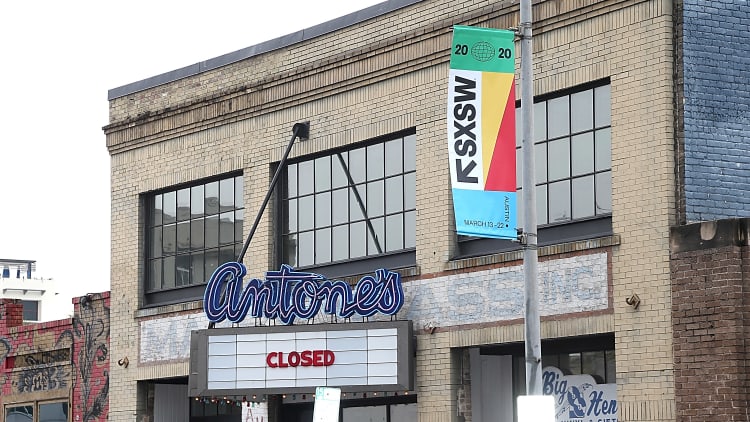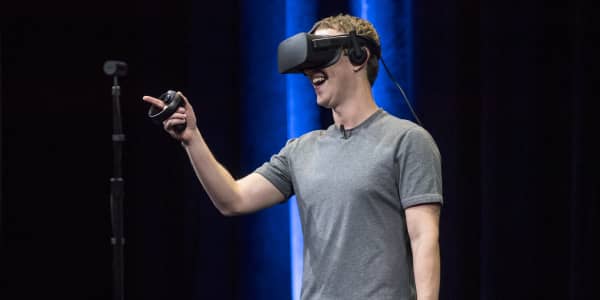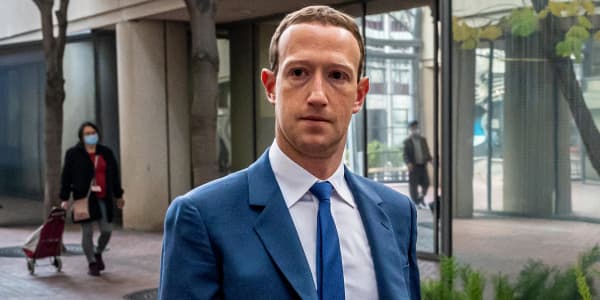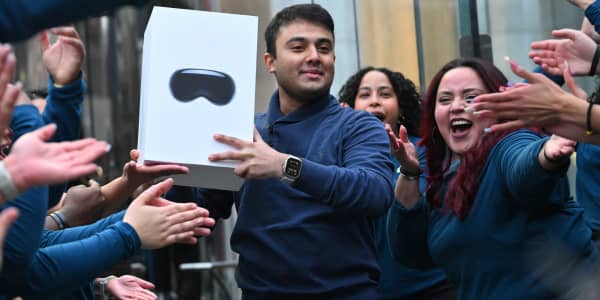Musical supergroups like Coldplay make hundreds of millions of dollars touring, but right now they're performing the equivalent of public service concerts.
Chris Martin of Coldplay, John Legend and Keith Urban are playing virtual concerts on social media platforms like Instagram and YouTube in response to the coronavirus pandemic. It could be a test case for more concert experiences migrating online in the future.
"I think right now anything that can take our minds off of our current reality is a blessing," said Gena Greher, a professor and interim chairperson of University of Massachusetts Lowell's music department. "If there is a way for artists to monetize [online performances], I'm sure we will see that happening," Greher said. "Any opportunity to reach a larger audience is something I'm sure any artist might consider."
Right now it is all about giving back and spreading the word about best practices during the health crisis.
Martin and Legend specifically have teamed up with Global Citizen, a multinational nonprofit, and The World Health Organization, in what is being called "Together at Home," a virtual concert series that encourages people to practice social distancing and to visit the WHO website with any coronavirus questions or concerns.
Martin performed bits of classic Coldplay songs, including "Yellow," "Viva la Vida" and "A Sky Full of Stars," on Monday. On Tuesday, Legend played "Stay With You," "All of Me" and other hits from his catalog before passing what's become a pop star virtual concert challenge to others, as he nominated musicians Miguel and Charlie Puth to perform next.
"A lot of artists have decided they want to make staying home a little bit easier for everybody," Legend stressed during his livestream.
Pop stars who are not part of "Together at Home" are doing their part, too, including Yungblud, who streamed a performance on YouTube; and country artist Keith Urban, who performed for 20 minutes Wednesday. And U2's Bono, who debuted a new song while streaming live from Facebook yesterday.
What the future holds for touring artists
As the music industry has migrated to streaming, and CD and even download sales have plummeted, touring has become critical to financial success. Indie music acts that depend on gigs for cash flow are being crushed by the current crisis and shutdown of music venues. Some have offered to create mini concerts for their fans to be shared exclusively via social media channels for a small sum — for example, $25 per song. Music clubs are also starting to livestream entire spring concert series. Jazz singer Cecile McLorin Salvant is currently performing concerts from her living room with payments made through Venmo, according to an NPR report on Thursday morning.
A-list acts, including The Rolling Stones, Green Day and the Foo Fighters, have canceled or postponed their summer tours because of the coronavirus.
Coldplay's last tour, "A Head Full of Dreams," grossed $523 million in ticket sales, the third-highest-grossing tour ever behind only The Rolling Stones' "A Bigger Bang Tour" ($558.2 million) and U2′s "360 Tour" ($736.4 million).
The tour cancellations have job market ripple effects. Popular touring artist Zac Brown said in an emotional video this week he had to lay off 90% of his staff.
CD sales dropped by almost half in 2018, according to the Recording Industry of America's midyear report, a pace of decline steeper than in previous years. Streaming, though, has continued to grow sharply, up 28% year-over-year.
Paid music subscriptions to services like Spotify, Amazon, Tidal, Apple Music and Sirius XM's Pandora, which are growing rapidly, have buoyed the music industry, according to the RIAA. In the 2017–2018 period, it was the first time since 1999 that U.S. music revenue grew materially for two years in a row, but that was still 40% below peak levels in the physical CD and digital download eras.
And how much musicians make from those streams remains debated. A Citigroup analysis from August 2018 found artists received 12% of the $43 billion the music industry generated in total in 2017, most of that from touring. But that year was the industry's most profitable year since 2006, according to Citigroup's analysis.
Other arts venues have moved to streaming as well. Museums are offering virtual tours and in New York and Los Angeles, theater groups have taken to showing performances of plays and musicals on niche streaming platforms like BroadwayHD and On The Boards. Comedians like Patton Oswalt and Maria Bamford are practicing their stand up routines on Twitter and Zoom.
If people can't leave their safe home, they may well be prone to dig deeper into their pockets than during normal times.William Moylanmusic school professor, University of Massachusetts Lowell
Touring will be back, as will other forms of live artistic interaction and performance. But If social distancing remains a part of life throughout 2020 and in years to come, live streaming of concerts could rise in parallel to streaming services like AT&T Time Warner's HBO Max, Netflix, NBCUniversal's Peacock and Amazon Prime?
Bands like Coldplay have already been experimenting with the approach.
Last November, Coldplay live streamed two performances on Youtube as they played tracks from their new album "Everyday Life" in Jordan — citing environmental concern for why they would not be touring the new record.
And in June 2017, pop star Ariana Grande hosted "One Love Manchester," a benefits concert and British TV special to raise funds for Manchester after the city endured a terrorist attack two weeks prior. The concert, which featured several famous musicians, including Justin Bieber and Katy Perry, raised $3 million and accumulated over 14.5 million views.
"Concerts could become part of existing services, such as Netflix, Amazon Prime, HBO, etc," said William Moylan, also a music professor at UMass Lowell. But "the eyes and ears of the audience can be unforgiving," as the technologies to make performances as genuine as life performances require serious data bandwidth and speed of transmission.
Moylan said another big hurdle is that tours have buttressed the music industry because fans are willing to pay high ticket prices for the experience, but how much people are willing to spend on a virtual version of performance is hard to know.
"If people can't leave their safe home, they may well be prone to dig deeper into their pockets than during normal times," he said.





